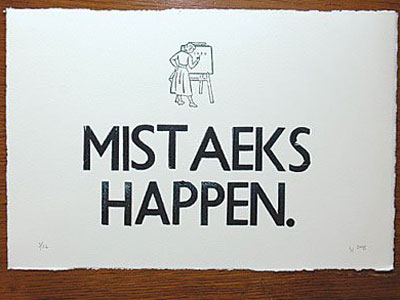Mistakes are inevitable: a wrong number here, a typing error there. The news media are full of them. There was never a realistic hope that they would disappear entirely. But when mistakes multiply, when the same ones are made over and over, the system is broken.

With the Worldwide War on Copy Editing nearing its conclusion and inevitable outcome, it will only get worse. Reports just this side of gibberish are lamented, then ignored, and then accepted.
Financial news coverage is especially susceptible to error. Put the decimal point in the wrong place, or miscalculate a simple percentage, and a news report becomes illogical and, often, indecipherable.
The big mistakes in the business press, though, are more profound than isolated errors. The problems are as acute in an analysis of the Federal Open Market Committee minutes as they are in a puff piece about a new store in town: “We’ve always done it that way.” The business pages, always a niche feature, turn readers away with their clubbishness, relentless cheerleading for capitalism, perpetual state of denial and, not least, banality.* This means that a lot of readers aren’t learning things they ought to know.
Exclusivity:
As the business sections retreat into the back pages of newspapers and the bowels of general-news websites, the clubhouse metaphor becomes more apt. The stories are rarely more than businesses talking to other businesses. Policy coverage is dedicated to speculating how the government might help businesses make money, not to explaining how it might affect the rabble (By this, I mean the general population, not individuals who might reap riches or lose everything. The human side of finance is rarely portrayed as anything other than one person’s road to prosperity or ruin. Individual “business leaders” — store owners and investment bankers alike — are profiled as exemplars of American values. Broad trends are obscured by local accounts of how Main Street reacts to general economic triumph or turmoil. Apple introduces a new iPad? Talk to people lined up to buy it, all of whom know what they are expected to say and do not disappoint. Get a picture (with an iPhone, of course, not a camera handled by a professional photographer). Unemployment drops by a tenth of a percentage point? Talk to the local fast-food franchisee, who hired a new grillmeister, even though it has no relevance to the jobs report, which, in any case, is likely to be revised a few weeks later. Leave the big picture to the wires.
Reaction:
The business press acts as one when a story breaks, regardless of whether it’s a real story or not. For example, this has been a record-setting year for the stock market by some measures. But the “records” don’t look so impressive when the various indexes are adjusted for inflation, which they almost never are. And, of course, the companies listed in the Dow Jones industrial average and Standard & Poor’s 500-stock index change periodically, so they compare different companies over time. This is elementary, and I’ve mentioned this before. Nobody listened. For local media, we’ve just been subjected to the annual orgy of Christmas-shopping stories, which are pretty much the same every year. “Black Friday,” “Small Business Saturday” and “Cyber Monday” have no angles left unexplored, yet hundreds of newspapers have assigned precious resources to interview people in line to buy cheap TV sets and toys. If our eyes glaze over — and they should — imagine being a reader. Another kind of reaction pops up in nearly every story: the opinions of “analysts,” who usually are stockbrokers or investment advisers with vested interests. Their comments are almost universally useless, yet the same ones are called over and over to muse on the day’s events even when “analysis” is either obvious or irrelevant, or both.
*The same could be said for political coverage, but that’s too easy a target.











